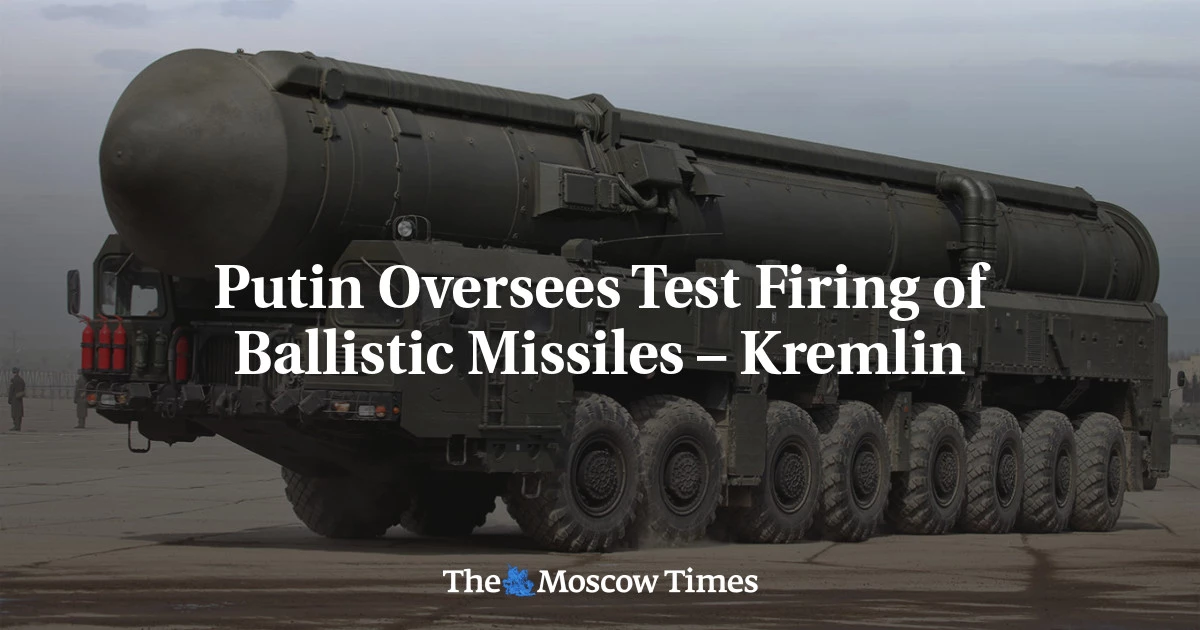Russian President Vladimir Putin on Wednesday oversaw ballistic missile drills remotely, the Kremlin said, hours after Russia moved to revoke its ratification of a landmark nuclear test ban treaty.
Moscow's defence minister Sergei Shoigu also said Russia's forces would also be practising a "massive" retaliatory nuclear strike.
The drills came 20 months into Moscow's Ukraine offensive -- which has raised some fears of nuclear war -- and hours after Russia moved to revoke a key nuclear arms control treaty.
"Under the leadership of the Supreme Commander-in-Chief of the Russian armed forces, Vladimir Putin, a training exercise was conducted with the forces and equipment of ground, sea and air components of nuclear deterrent forces," the Kremlin said in a statement.
"During the training, practical launches of ballistic and cruise missiles took place."
It said one of the missiles was fired from the Plesetsk cosmodrome in the Russian north and that another missile was fired from a nuclear-powered submarine in the Barents Sea.
Moscow said "long range Tu-95MS planes" took part in the training.
It added that the drills checked "the level of preparedness of military command and control bodies".
Russian news agencies later cited defence minister Shoigu as saying Russia will also involve practising "delivering a massive nuclear strike by strategic offensive forces in response to an enemy strike."
It was not clear from Shoigu's comments if he meant Russia would practise the strike in the same drills.
Russian state television aired footage of Putin being briefed by Shoigu and army chief Valery Gerasimov.
The drills came after Russia's upper house of parliament, the Federation Council, approved to revoke the ratification of the Comprehensive Nuclear Test Ban treaty, moving Moscow closer to abandoning the landmark agreement.
The 1996 treaty outlaws all nuclear explosions including live tests of nuclear weapons, but it has never come into force because some key countries -- including the United States and China.
They also came after Moscow said it would study US proposals to resume dialogue on nuclear arms control, but that it would not accept them unless Washington dropped its "hostile" stance.


